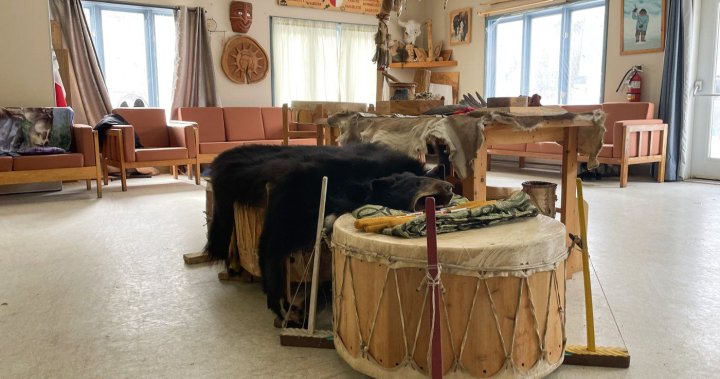
Indigenous healing lodges face chronic underfunding across Canada, critics say
Global News
Healing lodges for Indigenous people convicted of crimes have a track record of success. Supporters are asking why the lodges don't get more government support.
Every morning, Indigenous men at the Waseskun Healing Centre north of Montreal gather for a healing circle, where they smudge, share stories and sometimes gain spiritual guidance from elders.
The centre is the equivalent of a minimum-security prison but here, the men are called residents, rather than inmates, prisoners or offenders.
At the end of a healing circle on an early-spring morning, elder Grégoire Canapé shares a teaching.
“There’s this idea of bad apples, of taking the rotten one and throwing it out to save the others. But at the heart of that apple, there’s a seed,” Grégoire says.
“If we find the seed and plant it, if we take the rot and turn it into fertilizer — nurture the sapling — we get a tree.”
Grégoire’s analogy speaks to a central tenet of healing lodges like Waseskun. It isn’t a facility to punish or stow away. It’s a place where residents can take the time to heal from traumas and come to terms with the crimes that landed them in custody. Grégoire and his brother, Michael Canapé, visit residents every month to guide them on their healing journeys.
Waseskun is among 10 healing centres across the country that are funded by Correctional Service Canada and reserved for Indigenous offenders serving time in federal custody. The lodge, one of the oldest in Canada, sits amid the tall pines and rocky land of Saint-Alphonse-Rodriguez, 100 kilometres north of Montreal.
It is the only federally funded healing centre east of Manitoba and is one of six in the country that is Indigenous-run. Waseskun, which has been singled out by Public Safety Canada as a success story, serves only men and has 22 spots reserved for those who were sentenced to terms of more than two years.













